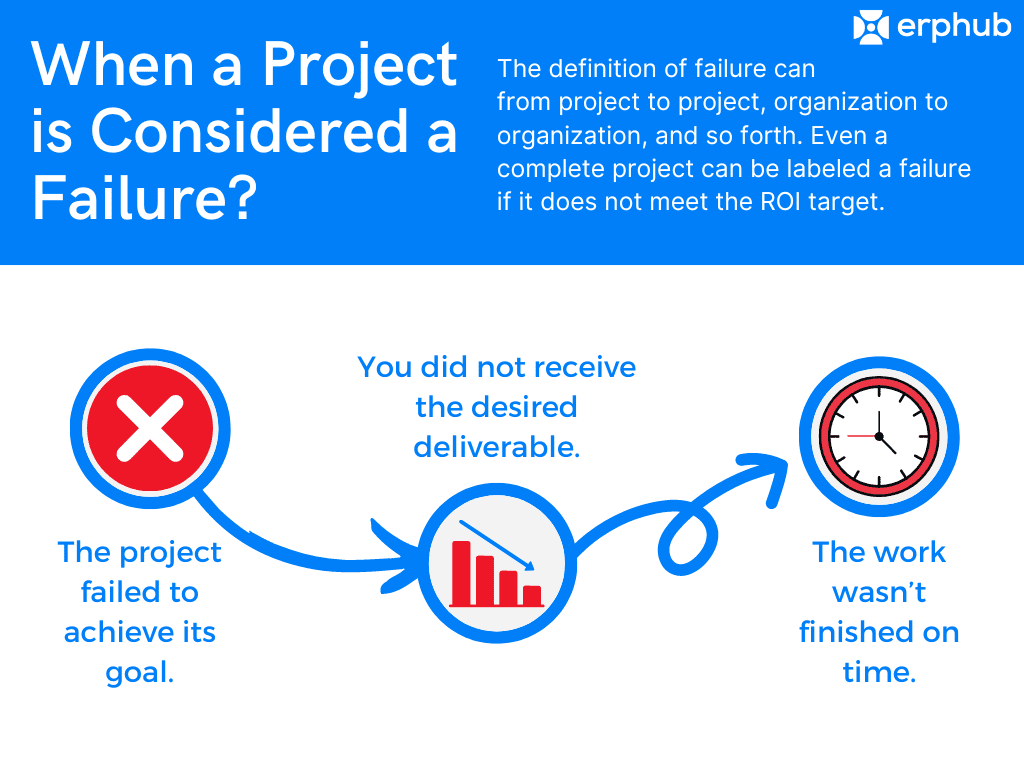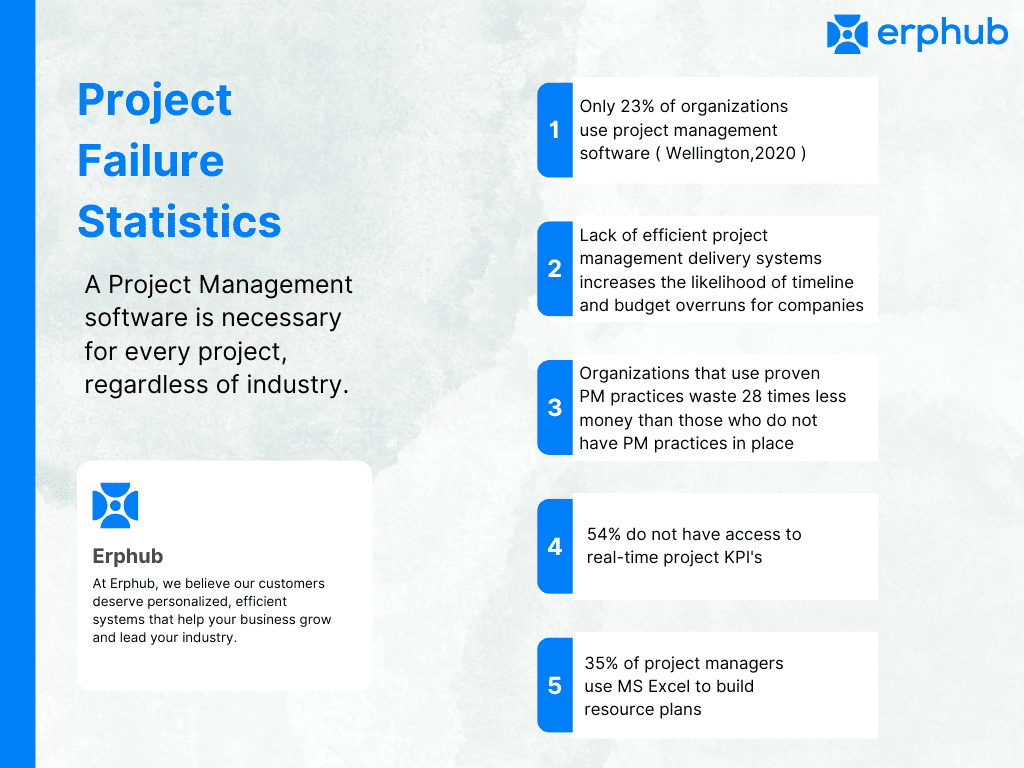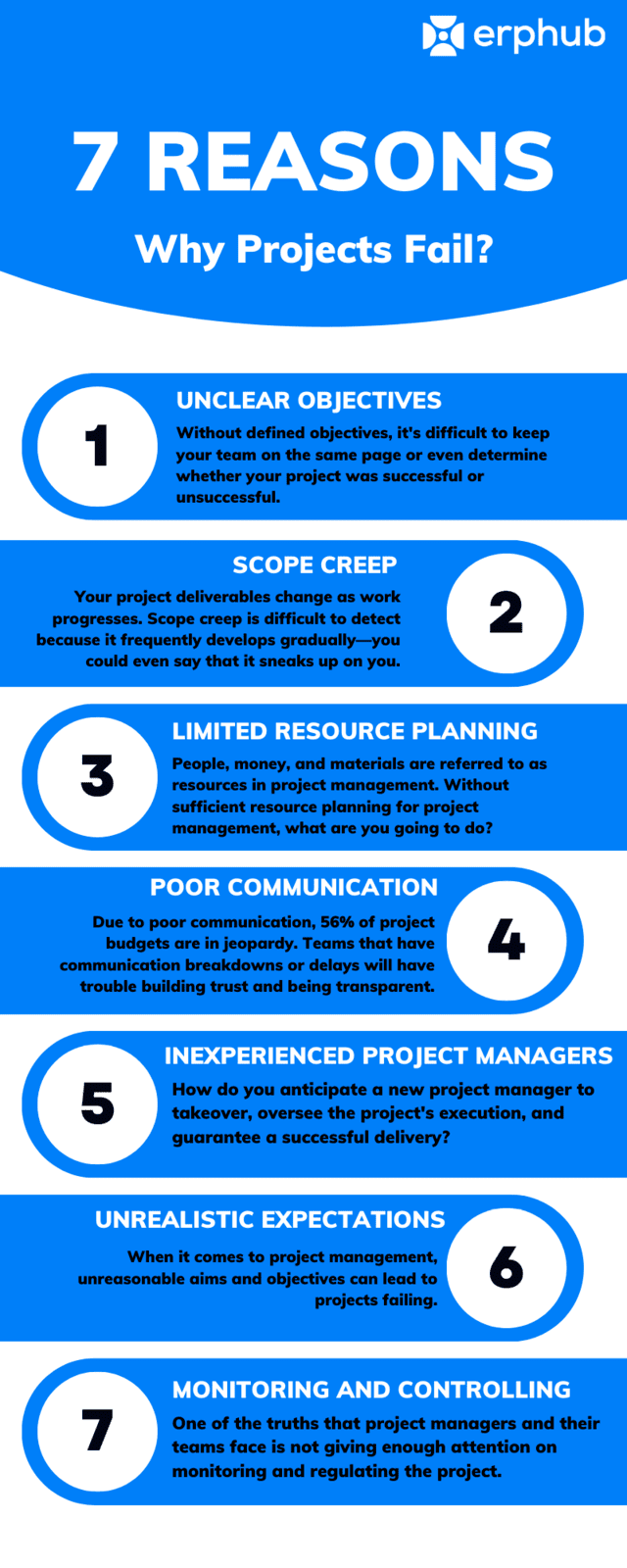
All of us have gone through it. A project initially causes you to become ardent. You conduct your research, create a detailed plan, put together a strong team, and get to work. However, as you go on, everything starts to abruptly come apart. You miss deadlines. The results don't meet your expectations. To put it plainly, customers and stakeholders are both unhappy because you're not succeeding like you're supposed to.
The pain of a failed project has been felt by the majority of project managers. Although you're not the only one who wants to avoid project failure, you've already made a significant move by reading this post. By planning ahead, you can avoid these typical reasons why most projects fail.
To offer your project the best chance of success, it's vital to be aware of frequent project problems, even though a perfect success rate isn't possible. In this post, we'll go over seven typical reasons why projects fall short, how to avoid them, and a few practical solutions to help you stay on course.
"Failure isn't fatal, but failure to change might be" - John Wooden
What is Project Failure?
Failure is personalized and can be defined differently for each organization. While a project can be considered a failure for one organization, it could be considered a success for another.
A project may be labeled a failure for the reasons listed below:
The project failed to achieve its goal.
You did not receive the desired deliverable.
The work wasn’t finished on time.

Project Failure Statistics
A project management software is necessary for every project, regardless of industry. Nowadays, its importance is more clear than ever. Without project management, things at work are prone to disappear. These statistics demonstrate the significance of project management and the broad impact it has on the sector.
- Only 23% of organizations use project management software (Wellingtone, 2020)
- Lack of efficient project management delivery systems increases the likelihood of timeline and budget overruns for companies
- Organizations that use proven PM practices waste 28 times less money than their counterparts who do not have PM practices in place.
-54% do not have access to real-time project KPIs
- 35% of project managers use MS Excel to build resource plans

7 Reasons Why Projects Fail
1) Unclear objectives
Project objectives are the things you hope to accomplish by the project's conclusion. They must to be precise, measurable objectives that you can evaluate once your project is complete. Without defined objectives, it's difficult to keep your team on the same page or even determine whether your project was successful or unsuccessful.
2) Scope Creep
Your project deliverables change as work progresses. Scope creep is difficult to detect because it frequently develops gradually—you could even say that it sneaks up on you. You wind up with more work than you anticipated when project deliverables go beyond the project scope. For instance, you planned to publish 10 videos this month talking about different products. As time goes on, a stakeholder has asked you deliver 2 more videos. With these new requirements, you're more prone to falling behind on your other deliverables and causing delays.
Delivering outcomes on time and within budget is simpler when scope is defined in advance. Resourcing might be planned in advance to prevent last-minute requests from overwhelming your team. A project scope that has been written down can also be used to reject supplementary requests from stakeholders. A scope statement can be used to describe the project's scope. Share your scope statement with your stakeholders as soon as it is finished. They'll be less inclined to add extra requests if they know exactly what is and isn't included in your project. When you do receive an additional request, you can structure and utilize a change control procedure to decide whether it is crucial enough to include in the project's scope.
3) Limited Resource Planning
4) Poor Communication
- No Communication Policies
- Lack of Stakeholder Management
- Unable to track communication with multiple channels
5) Inexperienced Project Managers
6) Unrealistic Expectations (Causing Delays)
7) Monitoring and Controlling
- Activities are completed in accordance with project requirements
- Project manager can oversee the fulfillment of crucial deadlines
- Clear overview of the capacity and workload of employees
- Improved scope creep management
- Precise tracking and adherence to the budget
- Team members' and stakeholders' held accountable

Examples of Failed Projects
Example 1: Google Glass by Google
The first augmented reality glasses, allowing users to browse the internet with a wearable optical display, were unveiled to the public in 2013. This was known as the Google Glass Project. Google sold 10,000 Glass units in 2012 to professionals, adventurers, and celebrities. Later, in the fall of 2013, Google established a referral scheme so that Glass owners could invite their friends. Google ran the same advertising multiple times, potentially reaching a million people. Whether it was expected or not, less than two years after the product's launching, sales ceased. What happened to the project with the cost-effective plan and a limitless budget? The designers of Google Glass focused on high-end features but neglected the requirement to outline the advantages of the device. The public's perception of this was that it lacked a firm release date, distinct advantages, or compelling use cases. There was no business case for the Google Glass project. Since Google was overconfident about the technical attractiveness of Google Glass and had the improper marketing focus, the project was never finished.

Example 2: Edsel by Ford
The Ford Edsel was introduced in 1957 by Ford. It was widely promoted that the Edsel model would satisfy all of the needs of American vehicle customers. However, it collapsed as a result of shocking project management issues. The overall project selection, the project's quality management, the project's scheduling, and the dangers that were there all contributed to the Ford Edsel's failure. However, the main problem rooted from the overall project selection. Instead of just creating another car just like their competitors, Ford went above and beyond, trying to make a car far more in advanced then they should have. From the start, Ford’s strategic planning should have been developed around a SWOT analysis to see whether or not the Ford Edsel should have been even created, and to see if they had the right resources to do it. Ford should have been more focused on their overall vision and the long-term goals of their company, rather than making a vehicle that had all their future improvements.

If you have any questions regarding our solutions or setting up an appointment, click on the button below.

